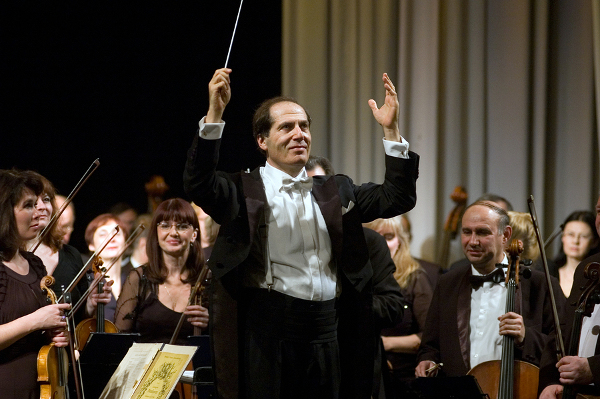
How to Effectively Run an HOA Board or Annual Meeting
 A meeting facilitator is like the conductor of an orchestra. The conductor needs to set the timing and the flow. They can't let one "musician" overpower the meeting, the "music" drag on, and must be strong/confident to keep everyone else in line.
A meeting facilitator is like the conductor of an orchestra. The conductor needs to set the timing and the flow. They can't let one "musician" overpower the meeting, the "music" drag on, and must be strong/confident to keep everyone else in line.
Do your HOA meetings seem to get out of hand? Or do they just need to run a little more smoothly? At times, meetings can drag on and it seems like nothing is getting accomplished. People go off on tangents and many are getting antsy and wondering why they bothered to come in the first place.
Any of this sound familiar? Even if your meetings run fairly well you will benefit from reading on for some hints. Many of these may seem obvious, but do you really adhere to these principles while facilitating a meeting? Maybe having these reminders in front of you is all you need.
OK, enough of the prelude, let's get to the hints:
 Facilitator Must Be Strong (what does that mean?)
Facilitator Must Be Strong (what does that mean?)
A strong facilitator sticks strictly to the agenda unless absolutely necessary to entertain a new topic. A facilitator should keep attendees on track and watch out for discussion going off on tangents. This is the number one reason for meetings dragging on.
Keeps focus on topic Even if the discussion doesn’t go off on a wild tangent sometimes the discussion drifts into the superfluous. A strong facilitator will help guide the topic towards a conclusion and reminds the attendees of the specific focus of the discussion when required. Prevent the "musicians" from performing too much improvisation.
 Reminds attendees of the time (“It is 7:00 p.m. and we are on item 2 of 10.”)
Reminds attendees of the time (“It is 7:00 p.m. and we are on item 2 of 10.”)
If the facilitator doesn't keep control of the time and flow of the meeting you certainly can't expect the homeowners to do so. Set tentative time slots for each topic and try to keep to those as much as possible.
Knows When to Suggest a Motion There are times when a discussion continues to play out even when it is apparent there is agreement on a topic. If it seems like continued discussion will not change anything this is the time to ask if anyone would like to make a motion of this topic.
Leads the Meeting Instead of Just Attending You are there to guide and control the flow of the meeting. Don’t let it run away from you. Otherwise it would be like an orchestra without a conductor.
Avoids Dead Air Keep the meeting moving if nobody is contributing. Move on to the next topic or bring the current topic to a conclusion. Keep the music playing!
Lead By Example If you go off on a tangent, attendees will assume that is acceptable. If you waste time telling a bunch of jokes, same thing. A quick little joke at an appropriate time can be OK to break up the monotony, but that should be the exception to the rule.
 Dead Topic
Recognize when there is significant disagreement and that further discussion won’t help. Step in and suggest you move on. Possibly table to another meeting if need be.
Dead Topic
Recognize when there is significant disagreement and that further discussion won’t help. Step in and suggest you move on. Possibly table to another meeting if need be.
Discussion Guidelines Set up some discussion guidelines ahead of time. Time limits per person, or interruption policies, etc. Don’t wait until controversy happens. Know in advance how you will handle such situations. Have a plan to allow all to be heard without losing control.
Stay Tuned for more helpful articles: Subscribe to Our Blog.
Let Us Help Our HOA Guru software will help you "conduct" all your HOA business more effectively. Watch A Demo to find out how.



